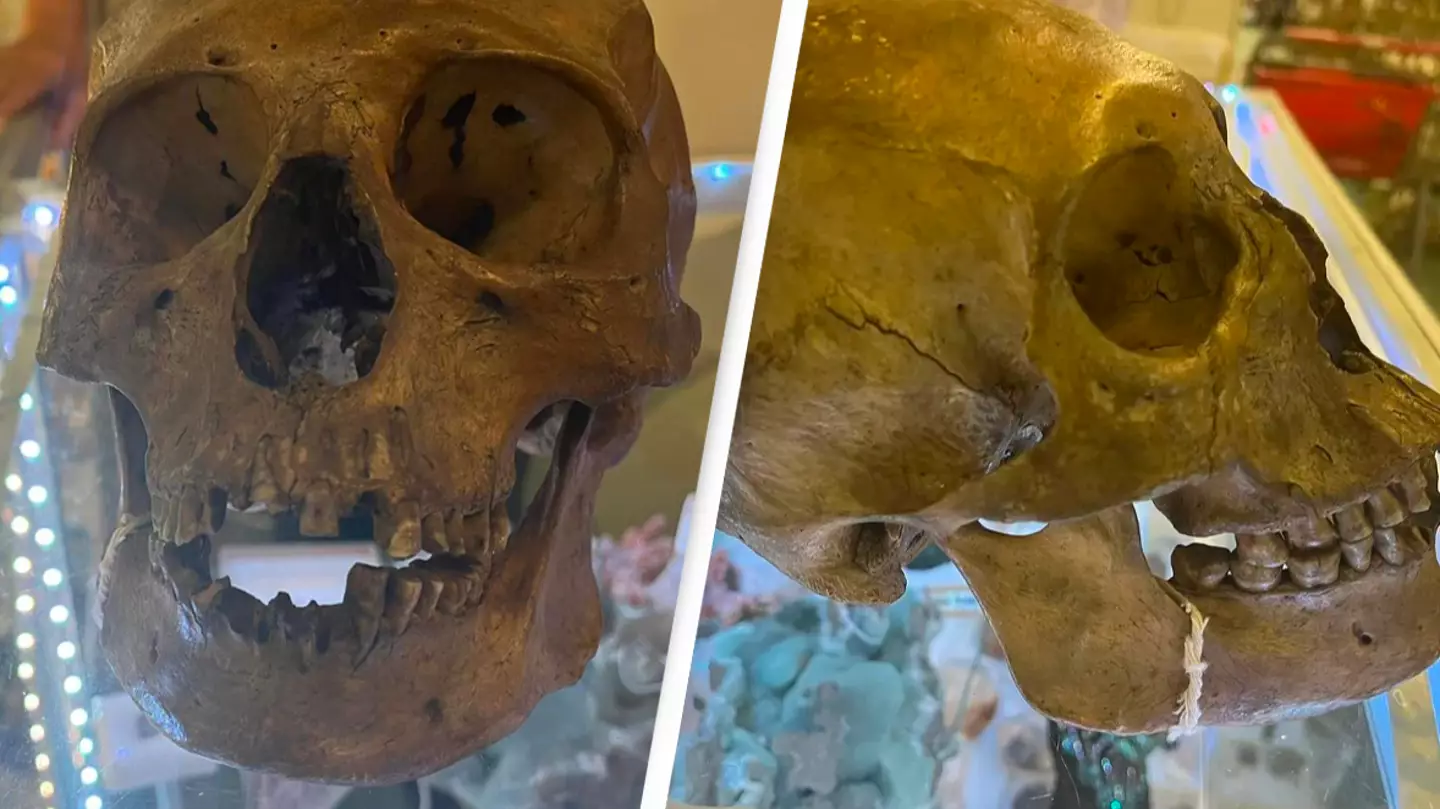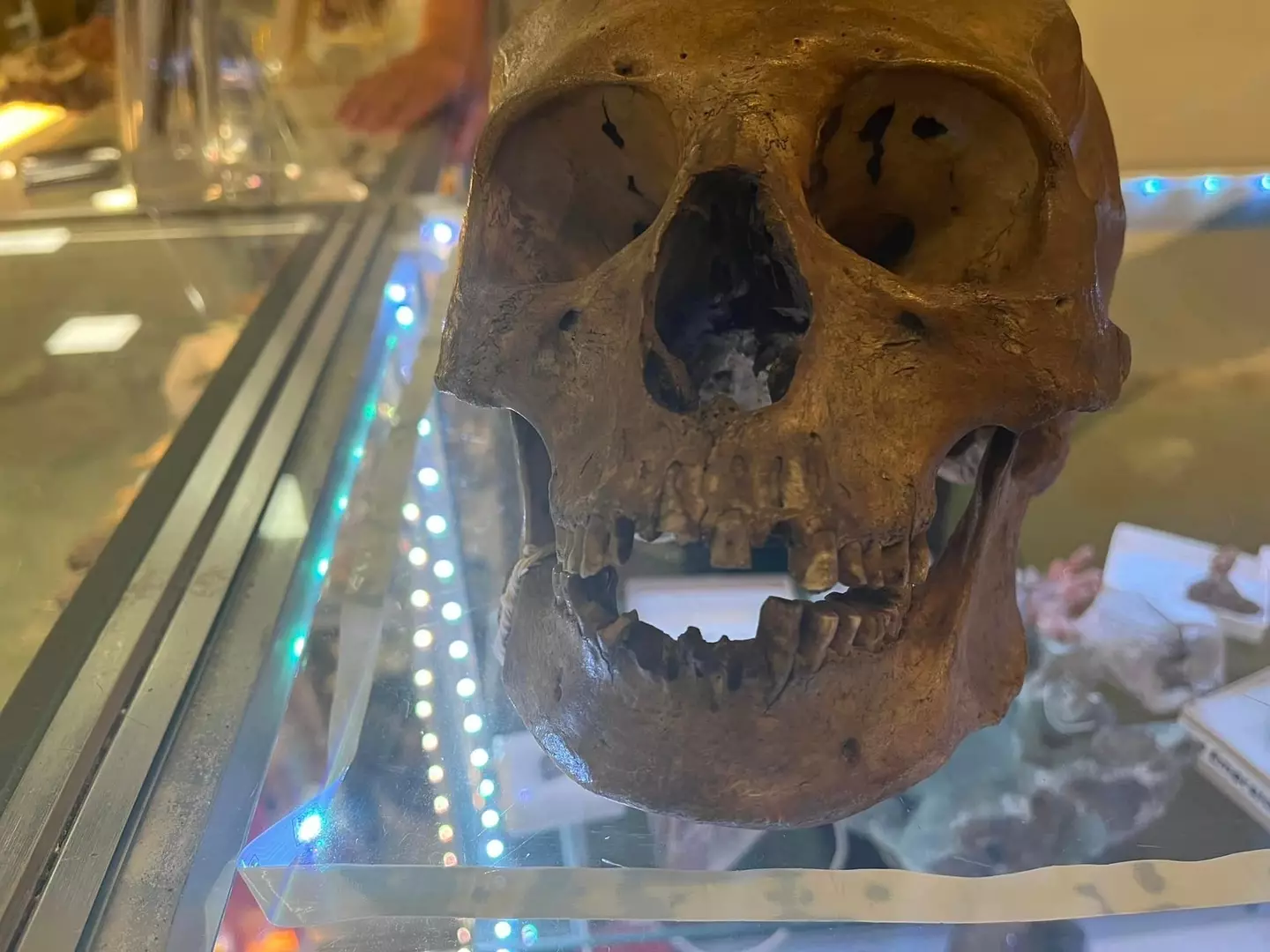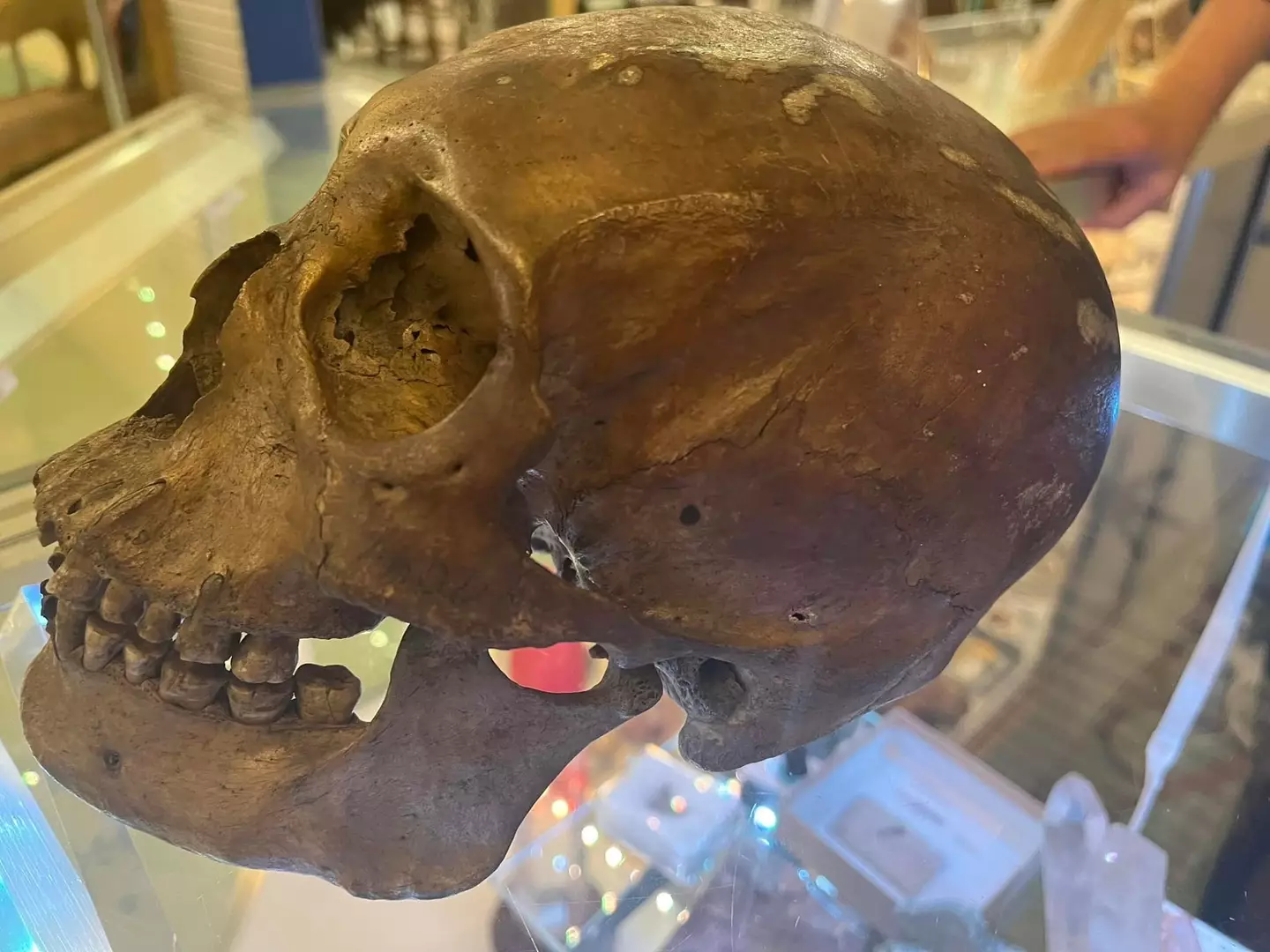
An investigation has been launched after a patron discovered that a Florida thrift store was selling a human skull in its Halloween section.
Lee County Sheriff’s Office Major Crimes Unit detectives were notified yesterday (November 4) by the shopper - who was also an anthropologist - of a skull located at a store in North Fort Myers.
The office’s Facebook group explained how the anthropologist shopping at the store made the discovery.
“The shopper, who happened to be an anthropologist, noticed the skull in the Halloween section and recognized it to be human,” the Lee County Sheriff’s Office said in a Facebook post.
Advert
“Detectives responded to the store on North Cleveland Avenue and recovered the skull.
“Based upon the observations of detectives on scene, the skull is believed to be that of a human.
“The store owner said the skull was located in a storage unit that was purchased in years prior.
“The Lee County Sheriff’s Office will work in conjunction with the District 21 Medical Examiner’s Office to facilitate further testing of the skull.”
Advert

Authorities have said they do not believe the case is ‘suspicious in nature.’
In accordance with Florida law, ‘no person shall knowingly offer to purchase or sell ... any human organ or tissue for valuable consideration'.
Eyes, kidneys, livers, corneas, hearts, lungs, pancreas, skin and bones are all subject to the rule.
Advert
Shockingly, similar incidents like this have occurred in recent months.

In September, police in Arizona launched an investigation after a human skull was discovered in a box of donated items at a Goodwill store.
“After speaking with the Medical Examiner's Office, preliminarily, it appears this human skull is historic and has no forensic significance, meaning there appears to be no associated crime," Goodyear Police said.
Advert
"So many questions need to be asked. Who was it? Who brought it? Are there cameras? A full-on investigation [is needed] into what happened."
Lisa Berry from Goodyear Police added: “At this point, and this is preliminary, it appears to be historic, ancient, and does not appear to have any forensic value."
Arizona has similar to that of Florida when it comes to the buying and selling of human organs or tissue.
“A person, that for valuable consideration, knowingly purchases or sells a part for transplantation or therapy if removal of a part from an individual is intended to occur after the individual's death commits a Class C felony,” according to State laws.